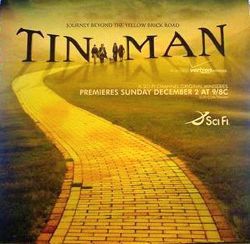I’m in the planning stages of my next project, which is honestly my favorite part of the writing process. There’s no emotional cost to killing unwritten scenes, no niggling logic flaws, no exhaustion at page 72.
Plotting a movie is mostly figuring out who the characters are, and what obstacles they’ll face. In film school, we were taught to look at character motivation as the combination of two questions: ((My recollection is that these ideas are featured in Syd Field, but I’m not inclined to look it up, for fear of sparking of an enraged tangent about how damaging I think most screenwriting books are.))
1. What does the character *want?*
2. What does the character *need?*
The implication is that your characters should be able to articulate what they want (true love, the championship, revenge) at or near the start of the movie, but remain clueless to what they truly need (self-respect, forgiveness, literacy) until quite late in the story.
The screenwriter-creator leaves explicit prayers unanswered, but performs subtle psychological revelation so that the characters exit profoundly changed.
Like most screenwriting hackery, this want-vs-need concept works just often enough to seem useful. You can trot out the familiar examples. Every character in The Wizard of Oz can be addressed this way (the Scarecrow wants a brain, but needs to realize just how smart he is). Ditto for The Sound of Music, though it gets a bit vague amid the younger Von Trapps.
Of my films, Big Fish and Charlie and Chocolate Factory come closest to fitting this template, though it requires a bit of hammering to get there. In Big Fish, Will Bloom begins the movie *wanting* to find the truth in his father’s tales, but he ultimately *needs* to accept that his father is contained within these tales. In Charlie, Willy Wonka *wants* an heir, but *needs* a family. ((Charlie Bucket *wants* a Golden Ticket, but *needs*…well, Charlie doesn’t really need anything, which is another argument for why Wonka is the protagonist, and Charlie the antagonist.))
Bolstered by these two examples, I spent a few hours this week looking at the characters in my project through the want-vs-need lens, before finally concluding it is complete and utter bullshit. Trying to distinguish between characters’ wants and needs is generally frustrating and almost universally pointless. The fact that I can answer the question for Big Fish and Charlie after the fact doesn’t make it a meaningful planning tool.
I’ve written about character motivation a [few](http://johnaugust.com/archives/2007/write-scene) [times](http://johnaugust.com/archives/2007/clarification-on-point-one), but hadn’t thought it necessary to define my objectives. But I think it can be simplified down to a single question:
**Why is the character doing what he’s doing?**
Here’s what I like about this definition:
* **It scales well.** You can ask this question about a character in a specific scene (“Why is he trying to get in the bank vault?”) or the entire movie (“Why is he racing in the Iditarod?”)
* **It implies visible action.** Characters in movies need to do something. That sounds obvious, but you’d be surprised how many scripts slather motivation on like spackle to fill the holes. ( “He has OCD because his father abandoned him.” Umm, okay, so why is he robbing a bank?)
* **It can be both concrete and psychological.** In Go, why is Ronna trying to make the drug deal with Todd Gaines? (A) Because she’s about to be evicted. (B) To prove to her friends (and herself) that she can. Both are true.
When I started asking this question, many of my concerns with the project I’m writing slipped away. The problem wasn’t character motivation, but how I was looking for it.
That said, you need to be careful not to stop at the first easy answer: *Why is he racing in the Iditarod?* “To win the prize money.” The better answer will likely lead to a better story. *Why is he racing in the Iditarod?* “To beat his ex-wife, the five-time champion.” “To catch the man who killed his brother.” “Because the ghost of his childhood dog is haunting him.”
For the record, I’m not writing Snow Dogs 4.

